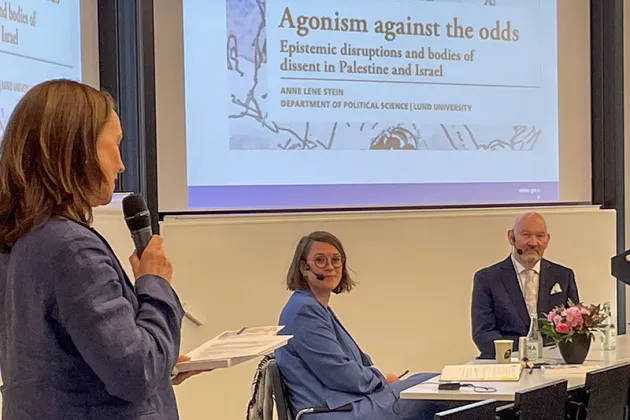External Reviewer: Professor Michael Schulz, University of Gothenburg
Supervisor: Lisa Strömbom
Assistant supervisor: Anders Uhlin
More information about the thesis is available in the Lund University Research Portal
Summary
This thesis explores how protests and performances in Palestine and Israel are used to challenge dominant versions of history and identity – especially those that silence or exclude marginalised voices. Focusing on events like joint Palestinian–Israeli memorial ceremonies, Jewish Israeli anti-occupation/anti-apartheid protests, and Palestinian artistic performances, it asks how these actions can disrupt entrenched divisions and create space for new ways of understanding and engaging with conflict.
The study is based on fieldwork across multiple sites in Israel and Palestine, including interviews and observations with both Palestinian and Jewish Israeli activists and artists. It develops the notion of agonistic epistemic disruptions–moments when performances of dissent not only challenge dominant knowledge, but also open up space for alternative future imaginations, even within a deeply divided and asymmetrical context.
By looking at how individuals resist through their bodies, voices, and creative expression, the thesis shows how protest can be more than opposition – it can be a way of imagining different political futures. Overall, this work sheds light on the power of performance and protest in divided societies and asks what kinds of resistance are possible when people refuse to be silenced.


